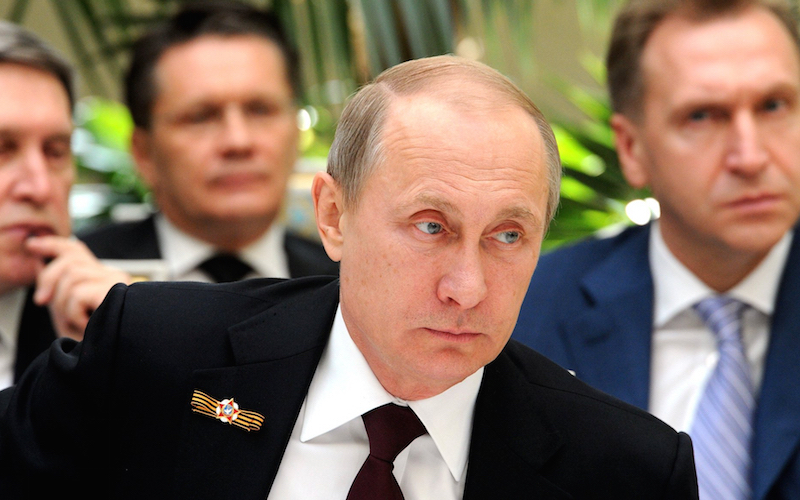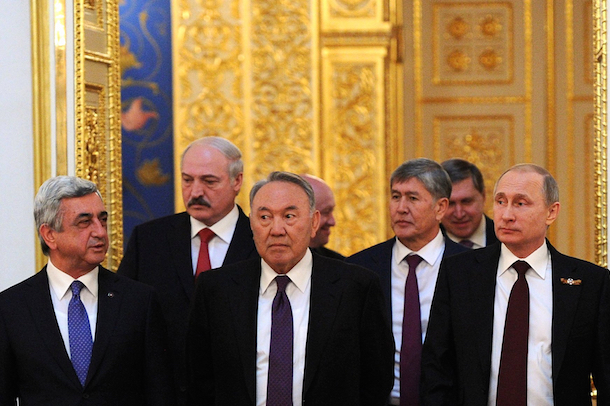
How Sanctions are Hurting Russia’s Central Asian Ambitions
Few contest the fact that Putin’s Russia has demonstrated overtly expansionist ambitions in recent years. The annexation of Crimea and support for Russian-backed rebels in eastern Ukraine have caused consternation in the West. For some, the US-European response of sanctioning the Russian economy has been ineffective. Rather than halt Russia’s agenda, critics argue, the sanctions merely demonstrate weakness on the part of the West and embolden Putin and tighten his grip on the leadership. However, when considering how effective the sanctions have been, critics should look beyond the continuing unrest in Ukraine to Central Asia, where the sanctions have devastated Moscow’s economic-expansionist ambitions in the region.
Whilst some contest that sanctions on Russia have only moderately damaged the Russian economy, they have undoubtedly tarnished its economic credibility.
Moscow’s once natural economic pull on the Central Asia republics has waned. Although Putin has attempted to realign the region to Moscow through the Eurasian Economic Union (EEU) and, eventually, under the umbrella of a single currency, Central Asia is now largely looking elsewhere to shore up its economic future.
Since the collapse of the Soviet Union, all the Central Asian republics, to a large extent, have been reliant on a growing Russian economy for their own financial security. With the recent collapse of the Russian ruble – the currency has halved its value since early 2014 and the economies throughout Central Asia have been hit hard. Regional inflation has increased cost of living pressures, notably in Tajikistan and the Kyrgyz Republic, Central Asia’s poorest states, both heavily reliant on imported goods to sustain their populations.

As Russia’s economic power weakens, so too does its magnetic pull on Central Asia. States previously interested in joining the EEU are walking back stated commitments. Tajikistan, for example, has backed away from its decision to join the union. Instead, Dushanbe has stalled, taking a more considered approach, and has established a stand-alone committee to examine the cost-benefit analysis of joining the Union. The Kyrgyz Republic’s recent albeit reluctant decision to join the Union caused widespread domestic discontent that demonstrates the social challenges other potential EEU signatories might face.
At this stage, only four nations have joined Russia’s union; Armenia, Belarus, Kazakhstan, and the Kyrgyz Republic. This loose association of weakened economies is unlikely to entice the currently unaligned Central Asian states, who see their economic fortunes tied to other regional powers.
Some may not see the weakening Russian economy as a disqualifier for Russian expansionism, with Putin’s incursions in Eastern Europe as a case in point. But Moscow’s pursuit of the EEU is itself a means of expansion. It is an attempt to utilize Russia’s cultural and economic capital to further entangle the Central Asian republics with Moscow. The US and European sanctions against Russia has undermined the EEU and its feasibility as a long-term unifying force in the region, therefore thwarting Russia’s ambitions in Central Asia.
In a panel discussion at the Brookings institute focusing on US Central Asian policy, held in March, 2015, Deputy US Secretary of State Antony Blinken discussed Washington’s interests in Central Asia. A central theme in his talk related to the ongoing, negative impact on the Central Asian economies that US sanctions on Russia was having. Blinken, aware of the impacts of the sanctions, encouraged Central Asian states to take advantage of this downturn and look elsewhere in the region for economic security. It seems, at least in Tajikistan’s case, that this message may be cutting through, as Dushanbe opens its economy to other foreign investors – notably, China.
Blinken’s comments demonstrate a calculated approach from the US, using their retaliatory sanctions, justified through Putin’s Ukraine incursion, to undermine Russia’s long-term interests in Central Asia. And by all accounts, this strategy is paying off.

